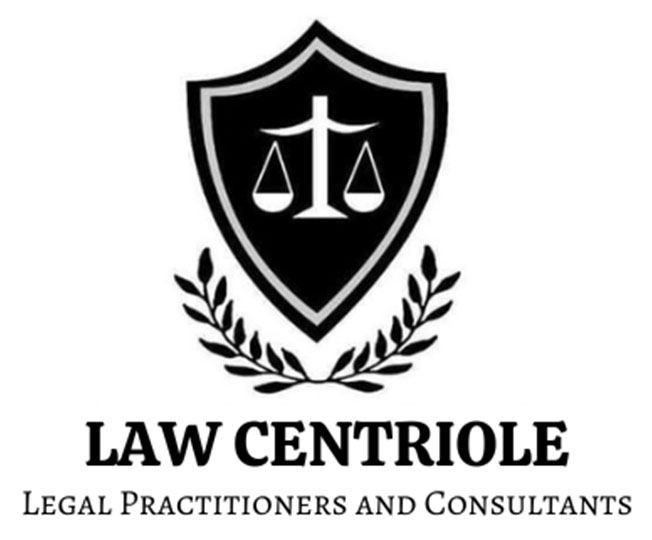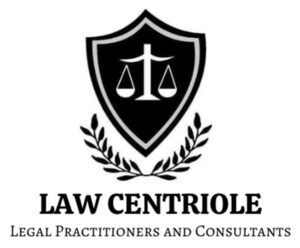Tenancy is a contractual relationship between a house or property owner and a person who desires to occupy the property for a specified period in exchange for payment, called rent. Understanding the complexities of tenancy laws in Nigeria can often be challenging for both landlords and tenants. In this article, we explore a few of the questions usually asked by Landlords and tenants alike as pertain to their rights and obligations in a tenancy.

-
What is a Tenancy Agreement?
A tenancy agreement is a legally binding contract between a landlord and a tenant that outlines the terms and conditions of the rental arrangement. This agreement typically includes critical details such as the duration of the tenancy, the rent amount, payment terms, and the obligations of both parties. In Nigeria, most tenancy laws, including the Recovery of Premises Act and provisions like the Lagos State Tenancy Law 2011, mandate that tenancy agreements exceeding three years must be in writing. This requirement helps ensure clarity, transparency, and enforceability, reducing the risk of disputes.
The Nigerian courts have repeatedly emphasized the importance of well-documented tenancy agreements. For instance, in African Petroleum Ltd. v. Owodunni[1], the court underscored the necessity of having clear terms in agreements to define the rights and obligations of the parties.
-
How Is Rent Governed in Nigeria?
Rent refers to the periodic payment a tenant makes to a landlord for the use of property. Tenancy regulations in Nigeria are primarily state-specific, with various states enacting laws to govern landlord-tenant relationships. For instance, Section 4(1) of the Lagos State Tenancy Law 2011 explicitly prohibits landlords from demanding or receiving more than one year’s rent in advance for residential properties from sitting tenants. This provision aims to protect tenants from exploitation and ensure affordability in housing arrangements.
-
Who Should Pay Service Charges?
Service charges refer to additional payments made by tenants to cover the costs associated with the maintenance and management of shared facilities, such as electricity, water supply, security services, and general upkeep. The tenancy agreement typically outlines these charges, spelling out the respective responsibilities of landlords and tenants. Detailing service charge terms, such as the scope of services, payment schedule, and adjustment mechanisms, not only minimizes ambiguity but also helps prevent potential disputes. A well-drafted tenancy agreement ensures transparency and fosters a harmonious landlord-tenant relationship.
-
What Are the Rights of a Tenant in Nigeria?
Tenants in Nigeria are entitled to key rights that ensure a fair and balanced relationship with landlords. These include:
- Right to Peaceful Enjoyment: Landlords must not unlawfully interfere with the tenant’s possession of the property, as emphasized in Ihenacho v. Uzochukwu (1997)[2].
- Right to a Habitable Living Environment: Landlords are required to maintain the property in a safe and habitable condition.
- Protection from Unlawful Eviction: Evictions must follow due legal process; forceful eviction is prohibited by law. In Ilodibia v. Nigerian Cement Company Ltd[3], the court reiterated that tenants are entitled to peaceful enjoyment of their property and that landlords must respect their rights. Any attempt to forcibly remove a tenant without a court order was deemed a violation of the law.
- Right to Fair Rent Practices: Laws, like the Lagos State Tenancy Law 2011, regulate rent increments and prohibit exploitative practices.
- Right to Seek Legal Remedies: Tenants can pursue legal action to enforce their rights and seek damages for any breaches.
-
Can a Landlord Increase Rent Arbitrarily?
Rent increases must be reasonable and in line with the terms of the tenancy agreement. In some states, there are specific laws regulating rent increments. For example, under the Rent Control and Recovery of Residential Premises Law of Lagos State, landlords must provide adequate notice (usually six months) before increasing rent. The increase must also be justifiable and not excessive.
In Yahaya v. Chukwura[4], the court made it clear that a landlord cannot unilaterally increase the rent payable in a tenancy contract. The court held that tenancy is in the nature of a contract, and once the rent has previously been agreed upon, the landlord cannot unilaterally increase same.
Also, in Cobra Ltd. & Ors v. Omole Estates & Investment Ltd.[5], the Court of Appeal emphasized that the relationship between a landlord and tenant is contractual, and the terms of the tenancy agreement cannot be unilaterally altered by either party. Specifically, the court held that a landlord’s unilateral decision to increase rent without the tenant’s consent is ineffective unless both parties agree to the new terms. The court further clarified that a rent increase constitutes an offer by the landlord, which the tenant is free to accept or reject. If the tenant refuses to pay the increased rent, the landlord must follow due legal process to terminate the tenancy, rather than imposing the new rent arbitrarily.
-
What Are the Grounds for Eviction in Nigeria?
A landlord can evict a tenant for various reasons such as non-payment of rent, breach of tenancy terms, or expiration of the tenancy period. However, eviction must strictly follow the procedures outlined in the Recovery of Premises Act or relevant state tenancy laws. These laws require landlords to serve proper notices, including a quit notice and a notice of intention to recover possession, before obtaining a court order for eviction. Self-help measures, such as locking tenants out, removing their belongings, or disconnecting utilities, are illegal and have been consistently condemned by Nigerian courts. In Ihenacho v. Uzochukwu, the Supreme Court held that landlords must not resort to self-help and must adhere to statutory procedures.
-
What Happens if a Tenant Fails to Pay Rent?
Non-payment of rent is a breach of the tenancy agreement and can lead to eviction. However, the landlord must follow the proper legal process. The Lagos State Tenancy Law (2011) requires landlords to issue a seven-day notice to quit for monthly tenancies and a six-month notice for yearly tenancies before initiating eviction proceedings.
-
Can a Tenant Withhold Rent Due to Poor Maintenance?
Withholding rent is not an advisable course of action for tenants, even in cases where landlords fail to maintain the property. Nigerian law recognizes the tenant’s obligation to pay rent as distinct from the landlord’s duty to maintain habitable premises. Tenants are, however, entitled to seek remedies if the landlord neglects their responsibility.
In African Petroleum Ltd. v. Owodunni, the court affirmed that landlords are obligated to ensure that the premises are habitable and suitable for the tenant’s use. If landlords fail in this duty, tenants may pursue legal claims to enforce their rights, such as demanding repairs or seeking damages for any inconvenience or harm caused by the poor maintenance.
Additionally, the case Ilodibia v. Nigerian Cement Co. Ltd.[6] emphasized a tenant’s right to peaceful and habitable occupation, reinforcing the principle that landlords cannot abdicate their maintenance responsibilities. While tenants are encouraged to fulfill their rent obligations, they can report maintenance issues to the appropriate authorities or pursue legal action to compel the landlord to address the problem.
-
How Can Tenancy-Related Disputes Be Resolved?
Tenancy disputes in Nigeria can be resolved through alternative dispute resolution (ADR) mechanisms such as negotiation and mediation, or through formal litigation. ADR methods, including direct discussions or mediated sessions, are cost-effective and time-efficient, making them particularly suitable for resolving minor disputes between landlords and tenants. The courts have consistently encouraged ADR for such matters, as highlighted in Union Bank of Nigeria Ltd. v. Professor Ozigi[7], where the importance of amicable dispute resolution was emphasized to reduce litigation expenses and delays.
When ADR fails, litigation remains a crucial option for addressing tenancy disputes. Under the Recovery of Premises Act or equivalent state laws, tenancy-related issues such as eviction, rent arrears, and breach of tenancy agreements can be taken to court for adjudication. Landmark rulings like Ihenacho v. Uzochukwu have reinforced the principle that landlords must follow statutory processes when dealing with tenants. Similarly, in Coker v. Adetayo[8] the court underscored the obligation of both landlords and tenants to adhere to the provisions of tenancy agreements when disputes arise.
In essence, resolving tenancy-related disputes requires a fair and balanced approach that respects the rights of both parties. While ADR is often the preferred starting point for its efficiency, litigation serves as a necessary avenue when conflicts require judicial intervention. By adhering to legal frameworks and maintaining open communication, landlords and tenants can avoid unnecessary conflicts and foster a harmonious rental relationship.
Conclusion
Tenancy laws and agreements are fundamental to maintaining harmony in landlord-tenant relationships, ensuring that both parties understand and uphold their rights and responsibilities. Clear and well-drafted agreements provide a solid foundation for avoiding conflicts and ensuring transparency. By adhering to legal procedures and following established tenancy laws, landlords and tenants can foster a balanced and fair rental environment.
Disclaimer: This article is for informational purposes only and does not constitute legal advice. If you need legal advice on specific concerns, please contact a qualified attorney for personalized assistance.
Subscribe! follow!! share!!!
Has this article been of help? Why not consider subscribing to our mailing list us for more.
Do not forget to share, Follow our pages on Facebook and Instagram and also subscribe to our WhatsApp
[1] (1991) 8 NWLR (Pt. 210) 351
[2] (1997) 2 NWLR (Pt. 487) 257
[3] (1997) 7 NWLR (Pt. 512) 174
[4] [2002] 3 NWLR (Pt. 753) 20
[5] (2000) LPELR-6809 (CA)
[6] (1997) 7 NWLR (Pt. 512) 174
[7] (1994) 3 NWLR (Pt. 333) 385
[8] (1992) 6 NWLR (Pt. 249) 612,

